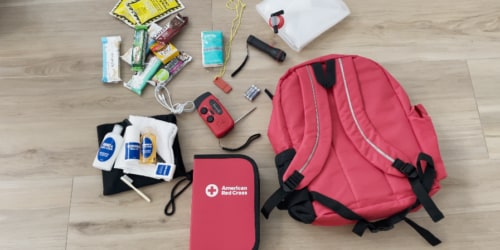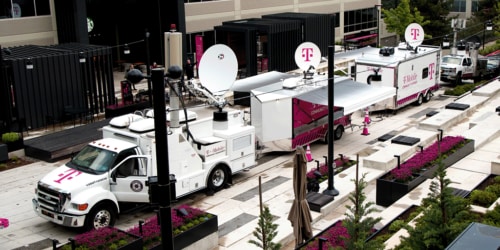We live in a mobile world, and businesses are simultaneously leading the way and doing their best to keep up. The pandemic forced us, like most companies, to send a majority of our workers home to work. This created a global shift in the way we do our jobs and how we interact with our customers. No matter the industry, businesses must be willing to meet their employees and customers where they are.
In Season 3 of our Taking Care of Business video and podcast series, we learned about the future of enterprise business from executives transforming their companies. They shared examples of the ever-changing landscape they had to navigate due to the pandemic and the shift to hybrid work, along with how they used mobile services to connect with their customers.
New way of working
From my conversations with Sri Shivananda, chief technology officer of PayPal to Jim Weaver, chief information officer for the state of North Carolina, one thing was clear – customers need to be connected anywhere and anytime. Shivananda called mobile “a ubiquitous form of interaction.” People have been able to shop online for years, but they expect that same (or even better) experience from their handheld device, including an easy way to pay.
Weaver also understands this as he leads a modern workforce building smart cities with public services that respond to the community’s needs in real time.
Digital well-being
Health care is no exception in the mobile world. Dr. Elizabeth Wako, the CEO of Swedish Hospitals here in Seattle, emphasized the “fantastic” effectiveness of mobile clinics, which depend on wireless connectivity to distribute the COVID-19 vaccine. People can sign up for vaccine appointments and get text reminders for boosters. This “push” technology is effective for vaccines because it puts a reminder right in the patient’s hands.
UnitedHealth’s Carissa Rollins, chief operating officer, said that artificial intelligence and machine learning technologies made it possible for telehealth to become a first stop for health care during the pandemic. And it’s here to stay now that patients and providers are more comfortable with the technology for certain types of care.
Balanced approach to interaction
The key to all these examples is meeting people where they are, and that’s not always in a brick-and-mortar store or office. Yet amid the excitement of technology freeing us from physical limitations, we also heard about the importance of the human side of mobility. We’re embracing digitization to make our lives easier and our relationships stronger.
Amy Coleman, corporate vice president of Human Resources and Corporate Functions at Microsoft, is intent on establishing a balance between the benefits of mobility versus in-person collaboration. She’s been steering her company’s return-to-office strategy and finding that well-being is on managers’ minds more than ever. Employee surveys at Microsoft have determined that “social capital,” a term for the bonding that takes place in the in-person office, contributes to productivity and workplace morale. Is it possible to generate social capital among a distributed workplace like Microsoft, which counts employees in 177 office locations in 96 countries? Amy believes a balance can be achieved.
Cisco’s Gerri Elliott, chief customer and partner officer, talked about how virtual meetings are now the norm. She predicts that 97% of meetings going forward will have a virtual component because so many workers want the flexibility of remote work. Cisco is working on amazing features to improve the virtual experience – including the use of holograms!
Technology for good
Throughout our conversations, my guests agreed that Americans needs equitable access to 5G to maximize the life-changing, business-enhancing potential of the mobile world. Many of them are working to solve the digital divide. Microsoft is distributing hardware to underprivileged communities, North Carolina officials are lobbying for rural broadband, Swedish Hospitals are enabling telehealth appointments, and we here at T-Mobile are expanding connectivity through Project 10Million.
Neville Ray, our own president of technology, perfectly capped off the podcast season by describing T-Mobile’s 5G progress and the commitments we have made to deliver 5G capabilities across the nation: “We’ve built out this powerhouse 5G network, and it’s going to be so transformative. I cannot wait to see how it will start fulfilling the promises of what 5G can bring to every part of our lives.”
Watch full video interviews for all episodes of Taking Care of Business here, or listen to the episodes on Apple Podcasts, Spotify and Google Podcasts. And stay tuned for Season 4 in 2022!





